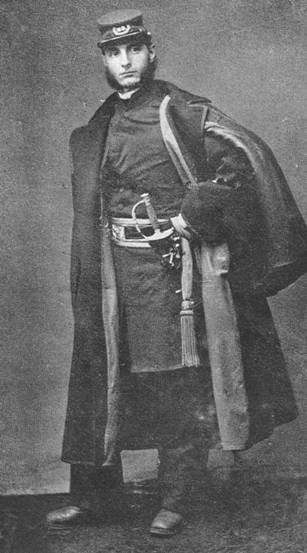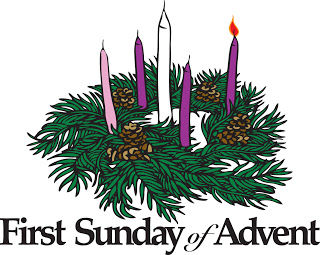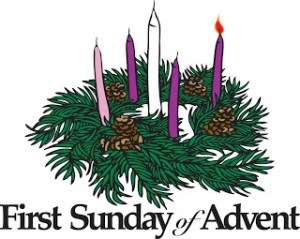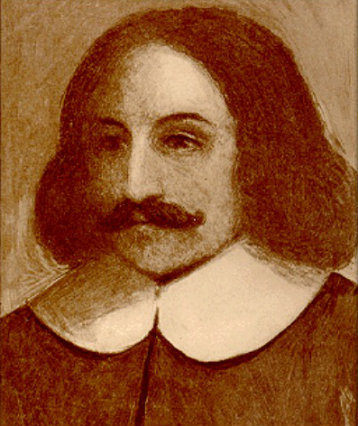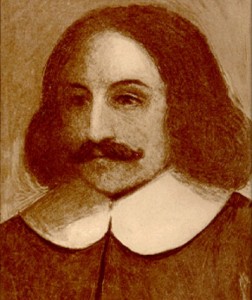Rejoice in the Lord always. Again I will say rejoice!
We see right in the opening lines of today’s Scripture passage the command of Paul to always rejoice. He must have meant it since he said it twice. What Paul is telling us is important as we move through these weeks of preparation for the birth of Christ, we must always rejoice. I know it is difficult when we are in line waiting or when we are ripping that last item out of another person’s hand because you want it, to rejoice, but we simply do not have a choice in the matter.
At the start of the fourth chapter, Paul is writing about two women in the church that just cannot get along. These two have struggled with Paul and are now at odds with each other for a reason that is unclear. My guess is that whatever it was they were arguing over was nonsense and so Paul did not even mention it. So many times we get into arguments about things that, in the final analysis, were so meaningless that we do not even remember what they were about, but even in these times, Paul is telling us to rejoice!
Rejoicing in what God has done for us changes us. Just like if we walk around constantly complaining about things and are always on the lookout for problems changes us, joy changes us as well. As Christians, we are not to be known by our aggressive holding of opinions but by our gentle dealings with people.
Years ago, it was all the rage to wear a bracelet that had the initials on it that read WWJD, what would Jesus do. Kids and adults would wear these as a constant reminder to always think about what Jesus would do in any given situation. Well, that is the wrong question to be asking. We are not Jesus. So the question should be, what does Jesus want us to do? Knowing that Jesus is present with us, in all situations, how should we be treating one another?
As people who follow Jesus, we are commanded not to be anxious but to pray and thank God in all times. God’s peace will guard our hearts, not our emotions, but our thinking and choosing, and will determine our mindset. This is the same advice that God gives in verse 5 of chapter 2 “Let this mind be in you which was also in Christ Jesus.” Jesus did not press for his rights but condescended to the will of God, even though He is equal to God. Paul continues in Chapter 2 of this letter, “being in the form of God did not consider it robbery to be equal with God, but made himself of no reputation, taking on the form of a bondservant, and coming in the likeness of humanity.”
So we are to rejoice, but we are also to be gentle. “Let your gentleness be known to all,” Paul tells us in verse 5. Gentleness, considerate, yielding all of these can be considered a weakness, however, what Paul is telling us is that this attitude describes how Christians are to conduct or represent themselves. The concern for others is not necessarily to be one of yielding. One of the greatest voices in the Anti-Slavery movement was William Lloyd Garrison. He was often accused of intolerance and ungentlemanly immoderation. To one of his accusers, he replied, “On this subject I do not wish to think or speak with moderation. No! Tell a man whose house is on fire to give a moderate alarm; tell him moderately to rescue his wife from the hands of a ravisher; tell a mother to gradually extricate her babe from the fire into which it has fallen – but urge me not to use moderation in a cause like the present.” However, Garrison never resorted to fear tactics or name calling in his constant struggle against the forces of darkness. As Christians, we have to speak the truth, but we have to tell the truth in love.
Verse 7 is often used as a Benediction in our services and at other times in our lives. “and the peace of God, which surpasses all understanding, will guard your hearts and minds through Christ Jesus.” What is this peace of God that Paul is talking about?
I have often said that English is a very limiting language. Take the word love for example. In Greek, there are four different words for the one English word love. In English we use the same word to say, “I love hamburgers” and “I love my spouse.” How can this be? Do we love them the same? Of course not, but words limit us.
In his book, Bible Translating, Eugene Nida explains the Mayan language: “Mya makes a distinction in the area of meaning covered by the English word peace. Maya has two words. One of these designates an inward peace of the heart and the other denotes the lack of strife between people.” Christians often demote “peace” from God’s great action into a small calming of our emotions or an ironing out of our daily difficulties. The peace that Paul is talking about, and the peace that Christians should be striving for is the peace that guards our hearts, and this is the peace of God brought about through Jesus Christ.
There is much talk in our world about peace. It seems all sides are fighting with each other on a limitless number of issues. But not just fighting, people are talking at each other and not to each other. We are screaming as a way of making a point and when we do that no one is listening. Peace can truly be accomplished in our world, but it begins inside each one of us. If we want peace in the world, then we have to have peace in our world. Peace in our homes. Peace at work, peace in our church. And peace in our hearts. We cannot hope to influence others to peace if we do not know it ourselves. As the old song goes, “let there be peace on earth and let it begin with me.”
Paul lays out for us the cosmic ramifications of peace in Christ. The peace of Christ is dynamic, it does things, it stands guard as sentinel. What Paul is speaking about here is the peace produced by God! God produces peace in this world, once person at a time and this peace will produce joy!
But what is this joy that Paul speaks about? We may not like the answer that Paul is about to give us, but we nonetheless have to hear it. Paul finds his joy through his sufferings. Through Paul’s sufferings the Gospel of Jesus Christ is advancing and for that he is rejoicing! In Paul’s very experience of pain, he has found the impossible joy, because in suffering an inevitable death and because of them, he has found men and women, like those in Philippi, coming to life in Jesus Christ.
Paul believes that the primary and abiding joy for Christians comes from the presence of Christ in their lives, not from circumstances. Sure things can bring us joy and situations can bring us joy, but those are fleeting. We look for situational joy, times that will make us happy but what Paul is speaking of is the joy of God through Christ in our lives and if we have that joy nothing can take it away, in fact, this joy will exist even in adverse situations.
When we make room for this joy in our lives, then peace will come over us. If we allow the peace of God to be the sentinel of our hearts and minds then when we are dealing with those in our lives, peace will reign and not disorder and chaos. I always remind myself that Jesus is in the room with me at all times and in all places, even when I am sitting behind a keyboard commenting on Facebook, Jesus is there. What is the message we are sending to those on the outside? What message are we sending when we have disagreements in Church that prevent us from continuing God’s mission? The disagreement that the two woman were having had apparently risen to the level that Paul needed to address it, and it had evidently started to keep them from the mission, spreading the Gospel. It was harming the community, and Paul wanted it to stop. He was telling them that it is not about us getting our way it is about God getting his way in each and every situation.
Joy comes when we make room in the inn of our hearts for the one who wants to come in. He is knocking on the door of our hearts, not just during this Advent season but all year long. He wants to come in and help us change and realize our potential. The season of Joy for a Christian cannot be reduced to one season or one day. The season of Joy for a Christian is each and every day. If we make room in our hearts, just a little room, the radical transforming power of God will take hold, and we will find peace and we will find joy, even in the midst of our suffering.
“And the peace of God, which surpasses all understanding, will guard your hearts and minds through Christ Jesus.”




